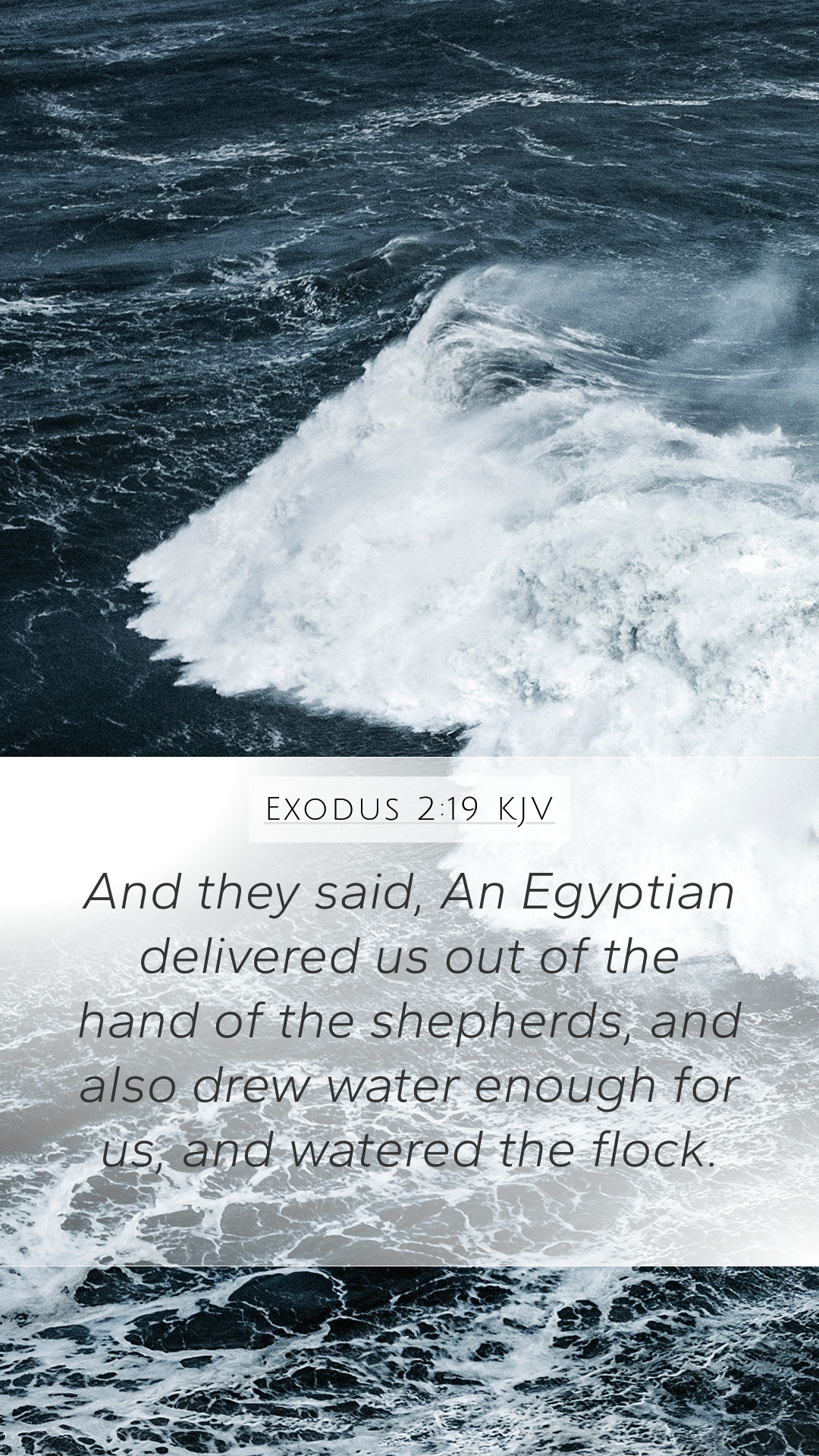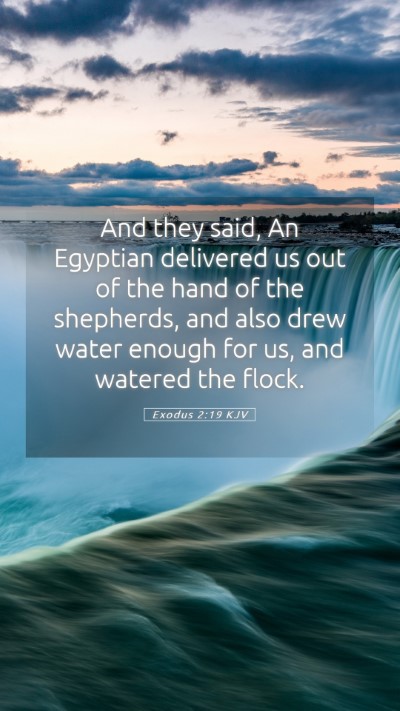Understanding Exodus 2:19: A Comprehensive Commentary
Exodus 2:19 is a verse that captures a moment of recognition and acknowledgment among the daughters of Jethro regarding the extraordinary actions of Moses. This verse serves as a rich subject for bible verse meanings and bible verse interpretations. Below, we explore the verse through various public domain commentaries, dissecting its significance and implications in a broader biblical narrative.
Text of Exodus 2:19
"And they said, An Egyptian delivered us out of the hand of the shepherds, and also drew water enough for us, and watered the flock."
Verse Breakdown and Insights
-
Identity of the Deliverer:
According to Matthew Henry, this verse emphasizes the identity of Moses as perceived by Jethro's daughters. They refer to him as "an Egyptian," which reflects their initial misunderstanding of Moses' true heritage. This is significant as it sets the stage for Moses’ dual identity — as a Hebrew raised in Pharaoh’s house.
-
Action and Service:
Adam Clarke notes that Moses’ action of delivering the women from the shepherds was not only a courageous act but also shown in his service of drawing water for the flock. This highlights themes of selflessness and service which are vital in the understanding of leadership within the Scriptures.
-
Symbolism of Water:
The act of watering the flock can be seen as a symbol of providing sustenance and care, which parallels the role of a leader or shepherd within biblical texts. Albert Barnes points out that in Scripture, a good shepherd nourishes and protects, drawing parallels between Moses and the type of leadership God desires.
Theological Implications
This verse not only illustrates a literal event but also encapsulates deeper theological meanings related to divine providence and deliverance. The daughters' acknowledgment of Moses’ help can be seen as a foreshadowing of how God would use Moses to lead the Israelites out of Egypt, showcasing the theme of biblical exegesis throughout the Exodus narrative.
Contextual Background
Understanding the historical context of Bible verses is crucial. At this juncture in Exodus, Moses is still in the formative stages of his life, having fled Egypt after killing an Egyptian taskmaster. His encounter with Jethro’s daughters signifies a turning point toward fulfilling God’s plan for him as a leader of His people.
Cross References
- Exodus 3:10 - God’s call to Moses to lead the Israelites.
- Acts 7:29-30 - Stephen’s recounting of Moses’ early life and flight to Midian.
- Hebrews 11:24-26 - Moses' faith in choosing to suffer with God’s people rather than being identified with Pharaoh's household.
Practical Application
Exodus 2:19 affords valuable lessons for contemporary readers. It urges an examination of our identities, the roles we undertake in service to others, and how we perceive divine intervention in our lives. Engaging with such passages is beneficial for bible study groups and enhances our bible study insights on the nature of God’s providence.
Conclusion
In conclusion, understanding Scripture requires a multifaceted approach including historical context, character analysis, and theological implications. Exodus 2:19 provides a compelling example of how God prepares His chosen instruments through ordinary acts of service and how recognition of such acts can lead to significant future transformations. By reflecting on these insights, we can better appreciate the intricate tapestry woven throughout the Bible.


